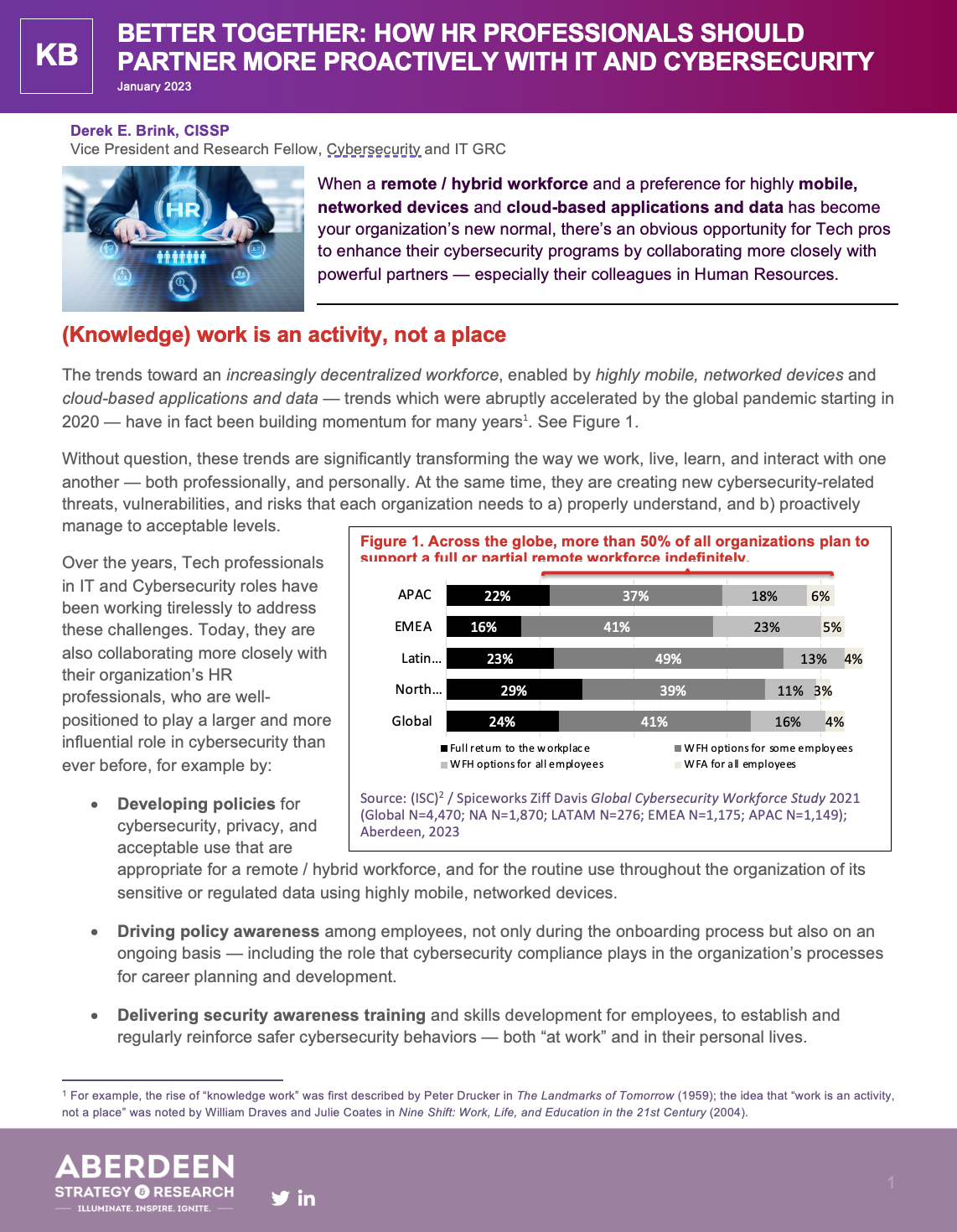In today’s digital landscape, where remote and hybrid work models have become the norm, organizations face new cybersecurity challenges. The rapid acceleration of decentralized workforces, fueled by mobile devices, cloud-based applications, and data, requires a proactive and collaborative approach to protect sensitive information. This article explores the research conducted by Derek E. Brink, Vice President and Research Fellow, and a renowned cybersecurity expert, highlighting the vital role of collaboration between technology professionals and Human Resources (HR) in enhancing cybersecurity programs. By leveraging the expertise of HR professionals, organizations can address the evolving threats and vulnerabilities that arise from this modern work environment.
Embracing the Activity, Not the Place
The shift towards a decentralized workforce has been underway for years, but it gained significant momentum during the global pandemic. This trend has transformed the way we work, live, learn, and interact, both professionally and personally. While these changes bring numerous benefits, they also expose organizations to new cybersecurity risks that demand proper understanding and proactive management.
Recognizing the Potential of HR
Tech professionals in IT and Cybersecurity roles have long been at the forefront of combating these challenges. However, collaboration with HR professionals can further fortify cybersecurity initiatives. HR professionals are uniquely positioned to contribute to cybersecurity efforts by:
- Developing Policies: HR professionals can create policies tailored to the needs of remote and hybrid workforces. These policies encompass cybersecurity, privacy, and acceptable use of highly mobile, networked devices for handling sensitive or regulated data.
- Raising Policy Awareness: HR professionals play a crucial role in fostering policy awareness among employees. This includes not only onboarding but also ongoing training. By incorporating cybersecurity compliance into career planning and development processes, organizations can reinforce the significance of maintaining a secure work environment.
- Promoting Security Awareness: HR professionals can deliver security awareness training and skill development programs. These initiatives help establish and consistently reinforce safer cybersecurity behaviors, both within the workplace and in employees’ personal lives.
- Influencing Technology Decisions: HR professionals have an opportunity to influence decisions regarding technologies provided to remote and hybrid workforces. By considering the “people” and “process” perspectives in addition to technology, organizations can ensure dedicated and reliable internet access, consistent security measures, and centralized IT management.
Addressing Human Factors
The annual Verizon Data Breach Investigations Report (DBIR) consistently emphasizes the importance of human factors in cybersecurity, privacy, fraud, and regulatory compliance. In the 2022 DBIR, over 82% of confirmed data breaches were a result of phishing attacks, stolen user credentials, misuse, or human error. Mobile devices also faced a 45% increase in cyber attacks, as highlighted in the Verizon 2022 Mobile Security Index (MSI).
By working collaboratively, HR professionals and Tech pros in IT and Cybersecurity roles can adopt a holistic approach to address the challenges in the following table:

Empowering a Secure and Productive Future
Collaboration between HR professionals and Tech pros is crucial to build a strong cybersecurity culture within organizations. By combining their expertise, these professionals can develop comprehensive policies, enhance awareness, and make informed technology decisions that prioritize both security and productivity.
To learn more about the research conducted by Derek E. Brink and gain deeper insights into strengthening your organization’s cybersecurity program, download the full report and schedule an intelligence briefing today.




